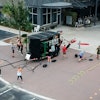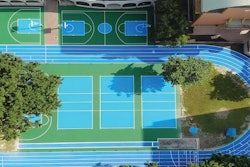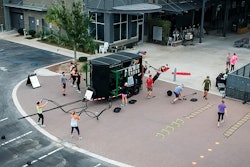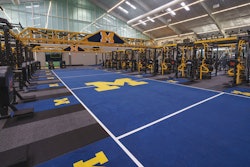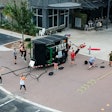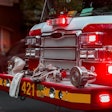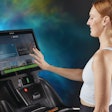There is an undeniable effectiveness of AEDs for saving lives. Why don't all fitness centers keep one on site?
While using the treadmill, an Illinois YMCA member suffered a cardiac arrest, resulting in brain damage. A staff paramedic gave aid, but the client remained in cardiac arrest for eight minutes until the county paramedics arrived and applied an automated electronic defibrillator (AED). The client filed a lawsuit alleging that 1) a cardiac arrest is a predicable and reasonably foreseeable event; 2) the YMCA has a duty to equip its paramedics and fitness trainers with cardiac defibrillators; and 3) the plaintiff's injuries occurred as a direct and proximate result of the YMCA's negligent behavior in failing to have an AED on hand.
There is an undeniable effectiveness of AEDs for saving lives. When coupled with the fact that they have been shown to be simple enough to be used by elementary school children, why don't all fitness centers keep one on site? This is due to two primary reasons: 1) cost ($2,000 to $3,000) and 2) liability. In regard to liability, it may now be that fitness facilities face considerably more liability for not using an AED than for using it. Three factors that indicate having an AED is to the fitness center's advantage are 1) in the above case, the YMCA was only one judge away from a negligence trial; 2) a federal statute that protects providers from liability; and 3) state legislation mandating the use of AEDs in fitness facilities.
AED immunity legislation
The Cardiac Arrest Survival Act (42 USCS Sec. 238q [2002]) is designed to accelerate the widespread use of AEDs by providing Good Samaritan immunity in states not providing such protection. The law protects any person who uses or attempts to use an AED on a victim from liability for any harm. This immunity applies regardless of training, and protects the user from liability for ordinary negligence. In addition, the law protects any person who has acquired or provided an AED so long as 1) the acquirer notified the local emergency response personnel of the device; 2) properly maintained the device; and 3) provided appropriate training to employees using the device.
The immunity does not apply to 1) acts that constitute gross negligence, reckless conduct, etc.; 2) licensed health professionals acting within the scope of their duty; 3) a hospital or clinic for healthcare; or 4) an acquirer who leases the AED to a healthcare entity. The statute supercedes the law of a state only to the extent the state has no statute or regulations that provide persons in such class with immunity.
In addition, every state now has some type of Good Samaritan statute, and some of the statutes requiring AEDs provide immunity to users and providers. Read the statutes in your state to learn the protection provided.
State statutes mandating AEDs
Four states (Illinois, Louisiana, New York and Rhode Island) have passed legislation requiring the availability of AEDs in fitness centers. The Illinois statute mandates an AED, trained staff and a written medical emergency plan. The Louisiana statute (R.S. 40:1236.13D, E and F) requires AEDs in all fitness facilities with 50 or more members, and in all educational institutions competing in intercollegiate athletics. The New York statute (5084-A) requires AEDs and at least one employee certified in their operation on-hand at all times in all fitness centers with 500 or more members. The Rhode Island statute (5-50-12) provides that all health clubs must have an AED and at least one trained employee on-hand at all times. (The complete statutes can be found on the Internet or in The Exercise Standards and Malpractice Reporter Vol. 18 No.4, pp. 54-59, Aug. 2004.)
Legislation in at least three more states (Michigan, New Jersey and Pennsylvania) is in progress. It is likely that other state legislatures will not be far behind.
AEDs save lives
The time is now to buy an AED for your fitness center to protect your clients and members. The cost is cheap when compared to the cost of a lawsuit and the bad publicity of an avoidable death in your fitness center.












